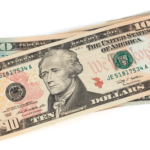It is well known that having bad credit can make it harder to secure favorable loan terms. Many lending providers consider such borrowers unreliable, and therefore, look for ways to compensate for that risk.
One type of loan that customers with bad credit may turn to is an instant approval loan. But the question remains: do these loans always come with high APRs? In this article, we will delve deeper into this question and provide tips on how to find the best loan options for those with bad credit.

What to Expect from Bad Credit Instant Approval Loans
Instant approval loans Filld.loan for bad credit users are known to have some of the highest APR rates compared to other traditional forms of financing. On average, these loans tend to have an APR of around 400% (or $15 per $100 borrowed), depending on the lending provider.
This is because the loan term is typically only 2-4 weeks, but the interest is compounded to express the cost as a yearly percentage rate. This calculation method can make the rate appear higher than it actually is, as it is calculated as if the loan were taken out for an entire year.
Furthermore, the APR for bad credit loans can vary greatly depending on the type of loan, such as a personal loan, a payday loan, or a cash advance. Personal loans tend to have lower APRs than payday loans or paycheck advances. However, the repayment timeline for personal credits is typically longer, so the overall cost of the loan may be similar to that of short-term loans over time.
It’s important to note that not all lenders have the same lending criteria and some may be more willing to offer products with more favorable terms for themselves, rather than for the benefit of borrowers. And there are good reasons for this being the case.
Why Do These Loans Tend to Have Higher Than Average APR?
As mentioned above, users with bad credit are seen as a greater risk of default, meaning they may not be able to repay the principal. To compensate for this risk, lending vendors charge a higher percentage on them. This is the first reason, with five more to follow.
They are Short-Term Options
Many bad credit loans that are approved instantly are of the short-term variety, such as payday loans. These loans have a shorter repayment period than traditional forms of financing, which allows the lending vendor to charge a higher interest percentage to make up for the shorter repayment timeline.
They are Often Unsecured
These credits are often unsecured, meaning the lending provider does not require a collateral pledge to back up the loan. As a result, providers take on more risk when approving requests from those with bad credit. To offset this risk, they typically charge a higher percentage on bad credit services.
They are Limited in Options
Not all lenders are willing to assume the risk of issuing bad credit loans. As a result, the options and loan amounts for this source of credit are limited. Customers may have to search for a while to find a suitable loan product that offers instant approval. Due to the limited availability of these options, some vendors may take advantage of the situation and offer loans with terms that are favorable to them.
They Often Don’t Get Repaid
Compared to other types of loans, bad credit loans have a higher likelihood of being defaulted on. A significant percentage, roughly 15%, of borrowers are unable to repay their debts at the end of the loan term. Additionally, a large number of bad credit loans, about one in five, are re-borrowed multiple times, according to the CFPB. As such, the provider needs to have a high APR to cover them.
They are Urgent
People with poor credit may be in urgent need of a loan and may not have the luxury of searching for the best deal. Additionally, they may not have as much leverage when negotiating loan terms. These factors can lead them to accept a product with less favorable conditions.
Are There Any Caps on APR for these loans?
Even though percentage rates on bad credit loans that are approved instantly are not regulated by the federal government, some states have set limits on certain types of loans like payday loans.
For example, in states like California, Nebraska, and Illinois, the maximum interest rate for payday loans is 36%. In some states like New York, payday loans are not allowed.
It is also important to note that some lenders may voluntarily limit their own APRs and some online lenders may have caps in place. The CFPB has also proposed rules that would limit the number of short-term loans a borrower can take out, and require lenders to evaluate the borrower’s ability to repay the debt, which could help to prevent predatory lending and reduce the rates associated with these types of financial services.






